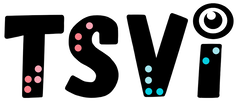- Home
-
Learn
- History of VI >
- Legislation & Laws >
- Vision Professionals >
-
VI Program Resources
>
- Program Printables
- Itinerant Teaching Tips
- Year at a Glance
- VI Program Handbook
- Caseload Analysis
- Organization & Time Management
- Professional Development
- Teacher Standards
- Professional Ethics
- Awards & Recognition
- APH Scholar Program
- Professional Organizations
- Certification Organizations
- Dealing with Challenges
- Professional Publications >
- Relatable Books for All Ages >
- Family Resources >
- Plan
- Basics
-
Teach
- Teaching Strategies >
-
Compensatory Skills Instruction
>
-
Social Skills
>
-
Self Determination
>
- Body Image & Acceptance
- Making Personal Goals
- My Vision Presentation
- My Self-Description
- Create a Personal Data Sheet
- Disclosure Decision
- Disability Statement
- Requesting Help
- Fighting Fears
- My Circle of Support
- Personal Responsibility
- Advocate for Safe Enviroments
- Having Picture Taken
- Coping with Change
- Aging Eyes
- Physical Characteristics
- Political Activism
- Laws Regarding Persons with Disabilities
-
Sensory Efficiency
>
-
Independent Living
>
- Orientation & Mobility Instruction >
- Recreation & Leisure >
-
Career & Vocation
>
-
Grow
- Complete Set Bonus >
-
Recorded Presentations
>
- Webinar: Tips for Being a "Physically Fit" TVI
- Webinar: The Art of Teaching the ECC
- Webinar: Virtual & F2F Strategies
- Webinar: Foundations of Teaching the ECC in the Age of Virtual Instruction
- Webinar: Itinerant Teaching Strategies
- Webinar: Using Themes to Teach the ECC
- Webinar: Conducting a FVLMA
- Webinar: Selecting the Right AT
- Webinar: Developing SMARTER Goals
- Webinar: Determining Service Intensity Using the VISSIT
- Webinar: Activities to Teach the ECC
- Webinar: Accessible Content for BLVI
- Webinar: Accommodations for VI
- Webinar: MIMO Strategies & Activities
- Webinar: SIDPID Strategies & Activities
- Webinar: Standard Course of Study Strategies & Activities
- Webinar: Job Tasks for Job, Career & Life
- Shop
- Jobs
Become a Vision ProfessionalBy: Carmen Willings
teachingvisuallyimpaired.com Updated May 15, 2017 Whether you know or have worked with someone who is blind or visually impaired, you may be interested in how you can become a vision specialist. There is currently a shortage of Teachers of Students with Visual Impairments (TVI) as well as Orientation & Mobility Specialists (O&M) and Rehabilitation Specialists in the United States. In the United States, there is a shortage of certified teachers of students with visual impairments. Whether you've heard that there is a shortage in the field of visual impairments, you're friends or family with someone who is blind or visually impaired or you've worked with someone who is blind or visually , you may wonder how you too can become a vision professional.
Becoming a Teacher of Students with Visual Impairments (TVI)If you enjoy collaborating with others, have strong report writing skills, are organized, have good time management skills, are willing to learn new technologies, like variety in your day, would like to work one-on-one with students ages birth to 21 and would like to make a difference in a student’s life, this may be the career for you! As a Teacher of Students with Visual Impairments (TVI), you will have the opportunity to improve the lives of students who are blind and visually impaired by providing specialized instruction and supportive services. The specialized instruction you provide to students will help prepare the student for each stage of life.
The TVI is a teacher first but has taken additional coursework to be specialized in visual impairments. To become a TVI, you must hold a teaching degree in general education or special education. Certification to be a TVI is an “Add-On” to your teaching license. Each state has different requirements but generally, you will be required to take approximately six courses specific to visual impairments. Coursework usually includes:
Becoming an Orientation and Mobility Specialist (O&M)Like Teachers of Students with Visual Impairments, there is a shortage of Orientation & Mobility (O&M) specialists nationwide. An O&M specialist provides related services. As an O&M Specialist, you will teach students to move safely and efficiently through their environment and also teach spatial concepts for purposeful movement. To become an O&M specialist, a bachelor’s degree is required but it is not necessary to have a teaching certification. Most programs require that you take approximately eight courses and complete an internship. Many programs offer a combination of distance and on site learning options. Learn about University Programs on the Professional Preparation Program page. In addition to taking coursework and completing the internship, most states require O&M Specialists to become certified through the Academy of Certification of Vision Rehabilitation (ACVREP).
Becoming a Vision Rehabilitation Therapist (VRT)Vision Rehabilitation Therapists (VRT), who were formerly known as Rehabilitation Teachers, are specialists in independent living. They teach people with limited vision to create new approaches to familiar routines so they can live on their own terms. VRT’s help students who transitioning from high school to college and career and also work with adults. To become a VRT, you must have a bachelor’s degree but it can be in any field. You will then need to obtain a master’s degree or a graduate certificate in Vision Rehabilitation Therapy. Some programs offer distance learning options. Learn about University Programs on the Professional Preparation Program page.
"I hope one day to see enough braille presses, libraries, schools, and training centers and teachers to assure all persons the opportunities they would have had, had they not been blind." -Helen Keller |
History of Visual Impairments
Professional Practice
Vision Professionals
Professionalism
Teacher Resources
Professional Publications
VI Book Resources
|
|
Teaching Students with Visual Impairments LLC
All Rights Reserved |
- Home
-
Learn
- History of VI >
- Legislation & Laws >
- Vision Professionals >
-
VI Program Resources
>
- Program Printables
- Itinerant Teaching Tips
- Year at a Glance
- VI Program Handbook
- Caseload Analysis
- Organization & Time Management
- Professional Development
- Teacher Standards
- Professional Ethics
- Awards & Recognition
- APH Scholar Program
- Professional Organizations
- Certification Organizations
- Dealing with Challenges
- Professional Publications >
- Relatable Books for All Ages >
- Family Resources >
- Plan
- Basics
-
Teach
- Teaching Strategies >
-
Compensatory Skills Instruction
>
-
Social Skills
>
-
Self Determination
>
- Body Image & Acceptance
- Making Personal Goals
- My Vision Presentation
- My Self-Description
- Create a Personal Data Sheet
- Disclosure Decision
- Disability Statement
- Requesting Help
- Fighting Fears
- My Circle of Support
- Personal Responsibility
- Advocate for Safe Enviroments
- Having Picture Taken
- Coping with Change
- Aging Eyes
- Physical Characteristics
- Political Activism
- Laws Regarding Persons with Disabilities
-
Sensory Efficiency
>
-
Independent Living
>
- Orientation & Mobility Instruction >
- Recreation & Leisure >
-
Career & Vocation
>
-
Grow
- Complete Set Bonus >
-
Recorded Presentations
>
- Webinar: Tips for Being a "Physically Fit" TVI
- Webinar: The Art of Teaching the ECC
- Webinar: Virtual & F2F Strategies
- Webinar: Foundations of Teaching the ECC in the Age of Virtual Instruction
- Webinar: Itinerant Teaching Strategies
- Webinar: Using Themes to Teach the ECC
- Webinar: Conducting a FVLMA
- Webinar: Selecting the Right AT
- Webinar: Developing SMARTER Goals
- Webinar: Determining Service Intensity Using the VISSIT
- Webinar: Activities to Teach the ECC
- Webinar: Accessible Content for BLVI
- Webinar: Accommodations for VI
- Webinar: MIMO Strategies & Activities
- Webinar: SIDPID Strategies & Activities
- Webinar: Standard Course of Study Strategies & Activities
- Webinar: Job Tasks for Job, Career & Life
- Shop
- Jobs

